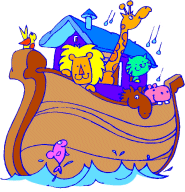"If man is not to stifle his human feelings, he must practice kindness towards animals,
for he ho is cruel to animals becomes hard also in his dealing with men.
We can judge the heart of a man by his treatment of animals.
Immanuel Kant (1724-1804)
Shocking statistics : According to Agriculture and Agri-Food Canada, 79,415 horses were slaughtered in Canadian plants in 2007.
Horse meat is sent overseas for human consumption.
In Asia, many of old horses, killed and then cooked as soup.
Can't animal, especially horses, just died peacefully and buried properly ?
Do they have to monetized old horses too??
According to Wikipedia, Cruelty to animals refers to the infliction of unnecessary suffering or harm to animals.(http://en.wikipedia.org/wiki/Cruelty_to_animals)
Broadly speaking, there are two approaches to the issue. The animal welfare position holds that there is nothing inherently wrong with using animals for human purposes, such as food, clothing, entertainment, and research, but that it should be done in a humane way that reduces unnecessary suffering. Animal rights theorists criticize this position, arguing that the words "unnecessary" and "humane" are subject to widely differing interpretations, and that the only way to ensure protection for animals is to end their status as property, and to ensure that they are never used as commodities.
There are many reasons why individuals abuse animals. Animal cruelty covers a wide range of actions (or lack of action). Learning about animal abuse has revealed patterns of behavior employed by abusers.
Animal cruelty is often broken down into two main categories: active and passive, also referred to as commission and omission, respectively.
Passive cruelty is typified by cases of neglect, in which the cruelty is a lack of action rather than the action itself. Examples of neglect are starvation, dehydration, parasite infestations, allowing a collar to grow into an animal’s skin, inadequate shelter in extreme weather conditions, and failure to seek veterinary care when necessary.
In many cases of neglect in which an investigator believes that the cruelty occurred out of of ignorance, the investigator may attempt to educate the pet owner, then revisit the situation. In more severe cases, exigent circumstances may require that the animal be removed for veterinary care.
Active cruelty implies malicious intent, as when a person has deliberately and intentionally caused harm to an animal, and is sometimes referred to as NAI (Non-Accidental Injury). Acts of intentional animal cruelty may be indicators of serious psychological problems.[citation needed]
Animal abuse may also be used as a form of intimidation in domestic disputes.
Read More
for he ho is cruel to animals becomes hard also in his dealing with men.
We can judge the heart of a man by his treatment of animals.
Immanuel Kant (1724-1804)
Shocking statistics : According to Agriculture and Agri-Food Canada, 79,415 horses were slaughtered in Canadian plants in 2007.
Horse meat is sent overseas for human consumption.
In Asia, many of old horses, killed and then cooked as soup.
Can't animal, especially horses, just died peacefully and buried properly ?
Do they have to monetized old horses too??
According to Wikipedia, Cruelty to animals refers to the infliction of unnecessary suffering or harm to animals.(http://en.wikipedia.org/wiki/Cruelty_to_animals)
Broadly speaking, there are two approaches to the issue. The animal welfare position holds that there is nothing inherently wrong with using animals for human purposes, such as food, clothing, entertainment, and research, but that it should be done in a humane way that reduces unnecessary suffering. Animal rights theorists criticize this position, arguing that the words "unnecessary" and "humane" are subject to widely differing interpretations, and that the only way to ensure protection for animals is to end their status as property, and to ensure that they are never used as commodities.
There are many reasons why individuals abuse animals. Animal cruelty covers a wide range of actions (or lack of action). Learning about animal abuse has revealed patterns of behavior employed by abusers.
Animal cruelty is often broken down into two main categories: active and passive, also referred to as commission and omission, respectively.
Passive cruelty is typified by cases of neglect, in which the cruelty is a lack of action rather than the action itself. Examples of neglect are starvation, dehydration, parasite infestations, allowing a collar to grow into an animal’s skin, inadequate shelter in extreme weather conditions, and failure to seek veterinary care when necessary.
In many cases of neglect in which an investigator believes that the cruelty occurred out of of ignorance, the investigator may attempt to educate the pet owner, then revisit the situation. In more severe cases, exigent circumstances may require that the animal be removed for veterinary care.
Active cruelty implies malicious intent, as when a person has deliberately and intentionally caused harm to an animal, and is sometimes referred to as NAI (Non-Accidental Injury). Acts of intentional animal cruelty may be indicators of serious psychological problems.[citation needed]
Animal abuse may also be used as a form of intimidation in domestic disputes.



